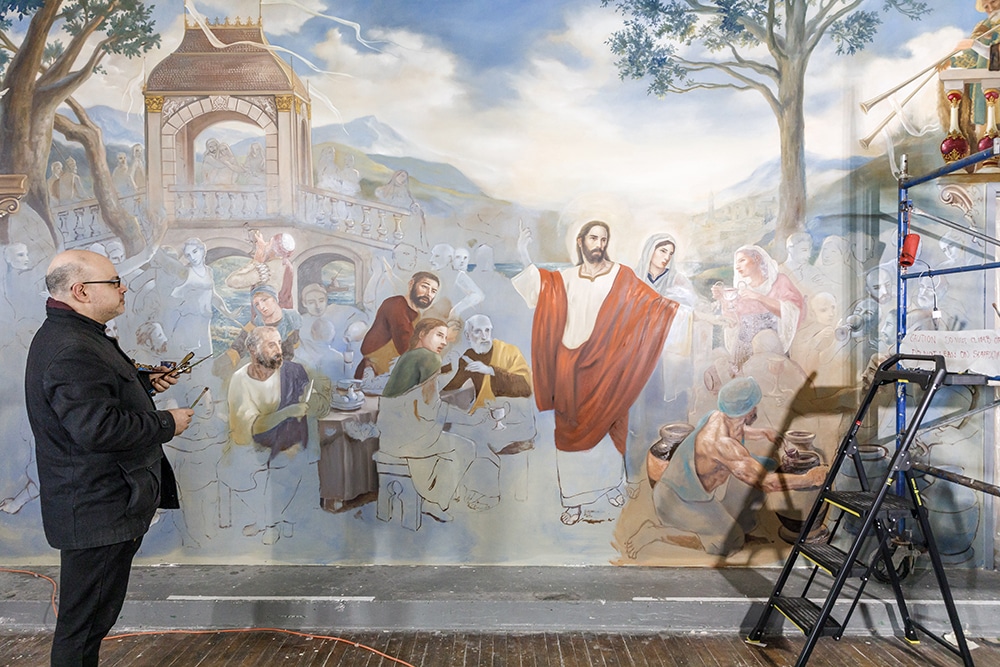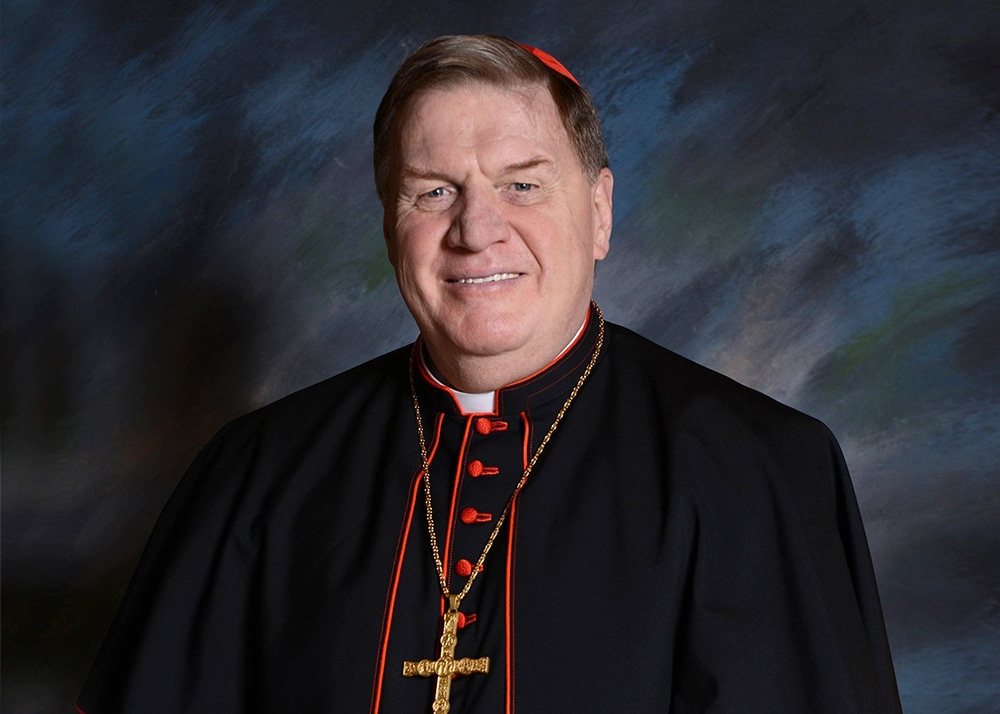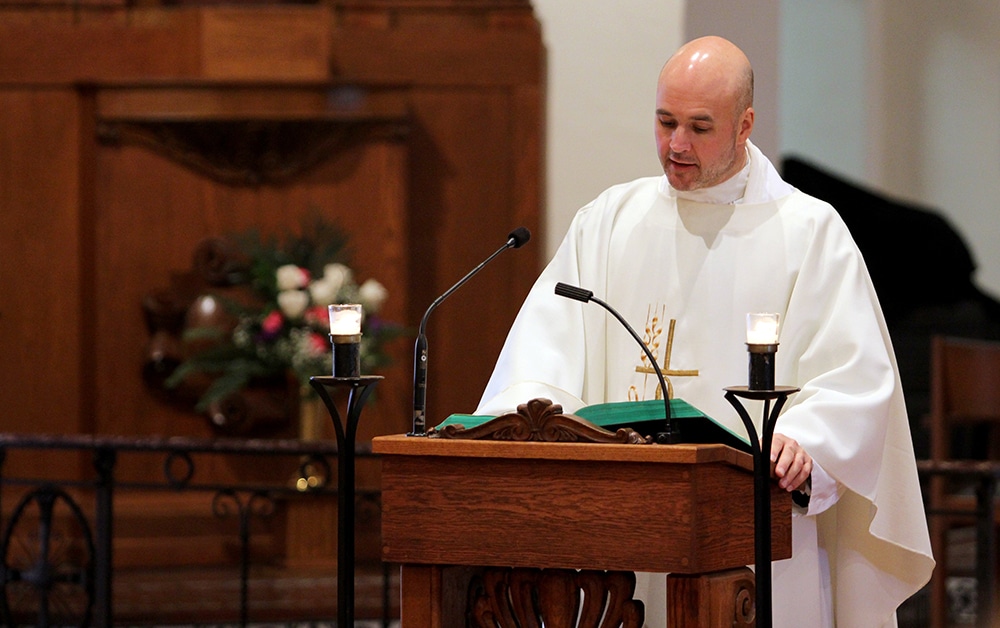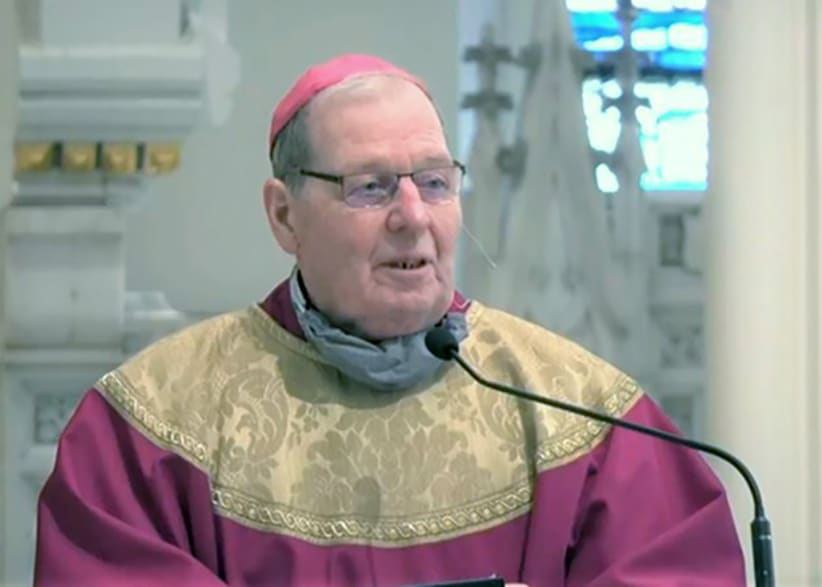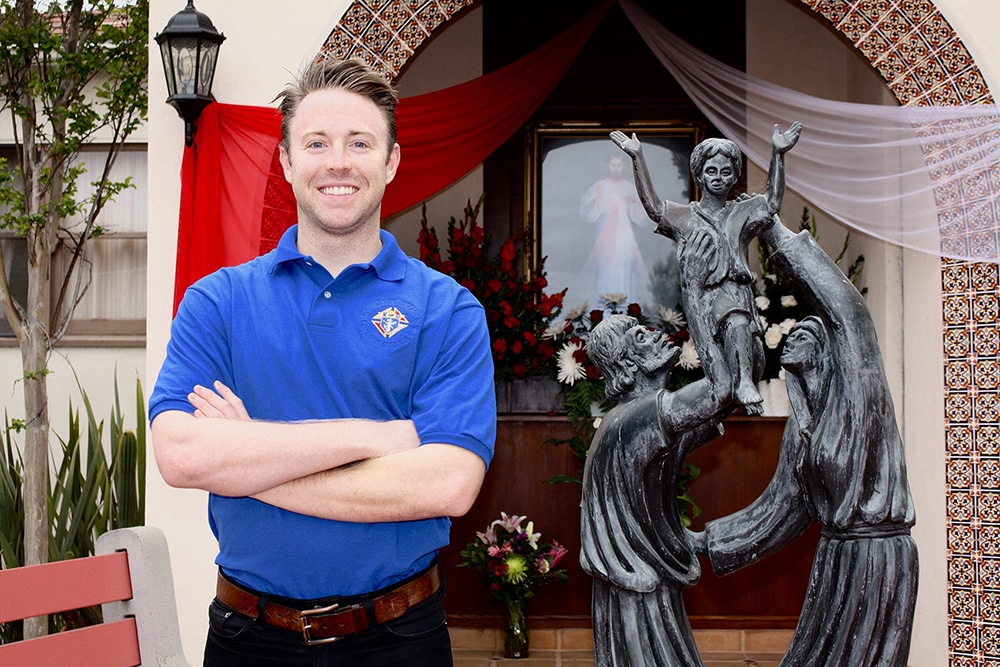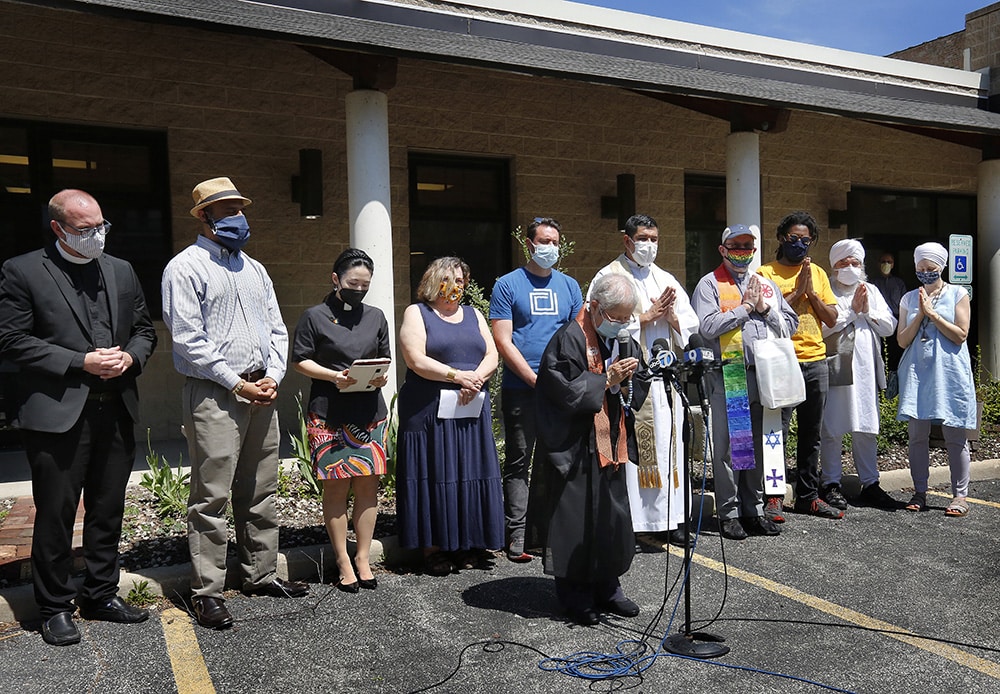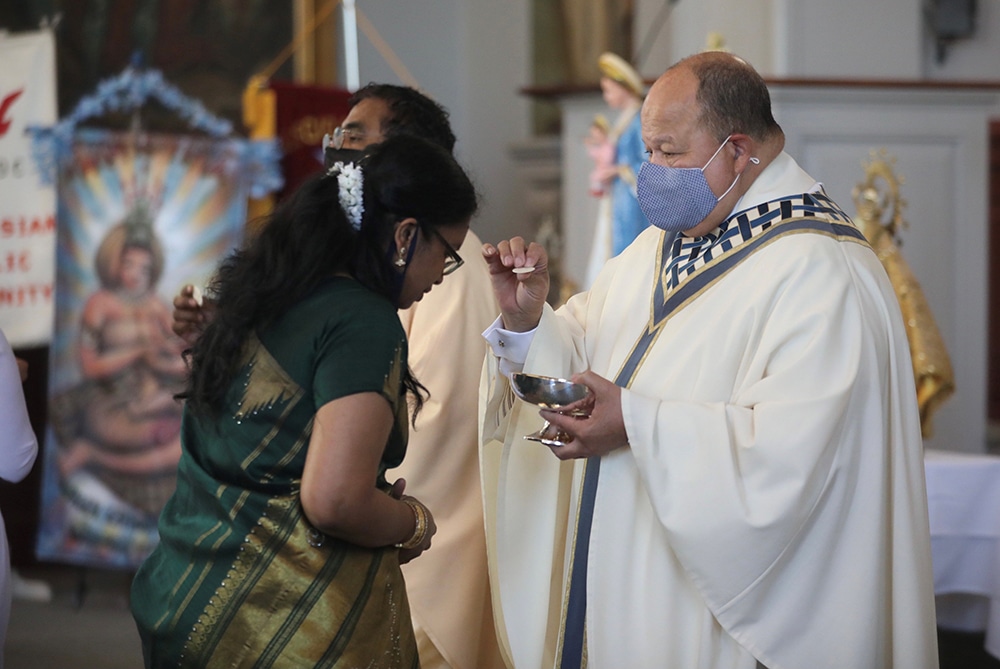WATERBURY, Conn. (CNS) — Jesus performed his first miracle at a wedding feast at Cana, in Galilee, according to the Gospel of John.
When the wine was running low, Jesus requested that the stone jars be filled with water. He prayed over the jars and then offered them to the headwaiter, who realized that the water had been transformed into wine.
Because the wedding feast is “one of the most celebratory events in the Bible,” said Father James Sullivan, pastor of the Basilica of the Immaculate Conception in Waterbury, a mural by artist Paul Armesto depicting the celebration will be the centerpiece of the renovation of the basilica’s hall, known as McCarthy Auditorium.
“I wanted the hall to exude celebration and joy, the core of the Christian life. I want the hall to be life-giving and also extremely welcoming, like the arms of a mother,” Father Sullivan told Catholic Transcript, magazine of the Archdiocese of Hartford.
The renovated space will be renamed the Blessed Michael McGivney Parish Center, Maurice McCarthy Auditorium. Father McGivney, an archdiocesan priest who grew up in Waterbury and received the sacraments at the then-Church of the Immaculate Conception, was beatified Oct. 31, 2020. McCarthy was a longtime basilica trustee.
It is likely, Father Sullivan said, that the mural will be the second largest in the world depicting the feast. It will be 42 feet wide, a few feet narrower than the current largest mural of the feast. That mural by Paola Veronese dates to the 16th century and is in the collection of the Louvre Museum in Paris.
In Veronese’s painting, Jesus is seated in the center of the table surrounded by his mother, disciples, clerks, princes and noblemen; the bride and groom are seated at left.
Armesto, who was born in Paris and now resides in the New York borough of Queens, said he took some artistic liberties in his version of the feast to convey the message of Jesus. “All of the composition is directed toward Christ,” he said. “All the other elements are to support that.”
For instance, Armesto’s painting, which will feature some 65 people, will include an image of a broken hourglass symbolizing the timelessness of Scripture, a knight representing the Knights of Columbus, and Judas Iscariot, one of the original 12 disciples, facing away from Jesus and instead picking up a coin. Traditional symbols include the disciple Bartholomew, who was flayed alive and beheaded, portrayed with a knife.
“He’s truly a classical artist,” Father Sullivan said of Armesto, who in the past painted the wedding feast on a smaller scale in Costa Rica. “He has tremendous artistic ability as well as religious fervor.”
The two men have known each other for several years. Armesto has painted other murals under Father Sullivan’s tutelage, including Mary’s Assumption and her coronation on the vaulted ceiling of the chapel in the Church of the Assumption in Ansonia, Connecticut.
In addition, he painted the ceiling in the basilica rectory, which includes Father McGivney and World War II priest Father Thomas Conway, who was also from Waterbury and the Church of the Immaculate Conception.
The hall dates to the late 1920s. It does not have a kitchen or running water. While it has been used for parish events, it was underutilized. Throughout the pandemic, it served as an overflow room for people attending Mass who watched the liturgy livestreamed on a large screen.
Construction began in November, but Father Sullivan began envisioning the renovation when he arrived at the basilica in January 2019. The work will include angels painted on the walls with the illusion that they are holding up the beams supporting the church above.
A multipurpose room currently located under the existing altar area will be used for Knights of Columbus meetings, Bible study groups and young adult activities. The McGivney Center also will feature a large, commercial-style kitchen that will be used for parish events and preparing meals for the needy.
It is hoped the interior will be completed by Aug. 13, the feast day for Blessed McGivney, but other work will likely take longer.
“It’s going to be beyond beautiful,” Father Sullivan said of the finished product. “It will be a place for families to gather and a place for the poor to gather.”
Avitabile is editor of the Catholic Transcript, magazine of the Archdiocese of Hartford.

